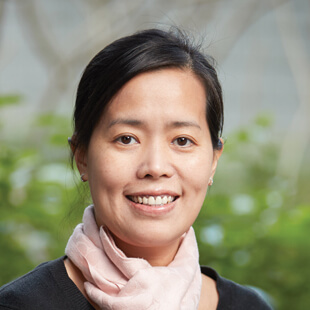
Teaching and Learning
Equipping Students with an International Outlook – Abroad and at Home
Dr Polly Chan Siu-ling
|
Senior Lecturer
|
Director, Bachelor of Nursing (Part-time) Programme (RN)
|
Chair of International Affairs Sub-committee
The University of Hong Kong’s commitment to being Asia’s global university is supported by its emphasis on internationalisation, defined as the process of integrating a global, international and intercultural dimension into the purpose, functions or delivery of postsecondary education.1 The School has worked to internationalise the nursing curriculum to encourage students to explore their worldview and expand their vision of nursing.2,3
Our approach to internationalisation involves two main streams: internationalisation abroad, which involves cross-border activities, and internationalisation at home, which involves integrating international and intercultural dimensions into the formal and informal curriculum for all students on our home campus.4,5,6 The School has incorporated both these opportunities into our undergraduate and postgraduate programmes. Nursing students are trained to be globally minded and have intercultural skills so they can provide optimal healthcare to culturally diverse populations in different arenas.
Due to the COVID-19 pandemic, most face-to-face internationalisation activities have been seriously affected by travel restrictions, so we made wide use of virtual settings to give students’ exposure in relation to intercultural learning on home campus. Our attempt has been to think outside the box by combining internationalisation at home and abroad, and we received a teaching development grant from the University to assess the potential effectiveness of this approach. A key question we explored was whether students’ abroad experience contributed to internationalisation at home, in particular whether this increased our ‘at home’ nursing students’ intercultural learning experience.
We invited senior students to share their abroad experiences related to cultural knowledge and skills with our Year 1 undergraduate nursing students in the Bachelor of Nursing programme. The sharing was conducted via an online learning platform. We conducted pre- and post-tests on them. The outcomes measured the change of their perceived cultural awareness score using a validated cultural awareness scale (CAS) with 36 items (score ranged 35-252). The higher the score, the better the cultural awareness score. We also conducted two focus group interviews using verbatim transcription with thematic analysis.
Among the 122 Year 1 students who completed the pre- and post- questionnaires, we found their cultural awareness was significantly improved after the interventions (within-group difference (d)=12.967, 95% CI=8.941, 16.993, p<0.001). Three themes were identified from the focus group interviews with the students: 1) This was a new way to gain intercultural learning experiences without travelling; 2) It offered a better understanding of culturally diverse groups; 3) It offered better preparation for future clinical practice in serving ethnic minority groups.
To conclude, students’ abroad experience might contribute to internationalisation-at-home as suggested by the study findings.
References:
- Knight, J. (2004). Internationalization remodeled: definition, approaches, and rationales. Journal of Studies in International Education, 8(1), 5-31.
- Grant, E., Mckenna, L. (2003). International clinical placements for undergraduate students. Journal of Clinical Nursing, 12(4), 529-535.
- Kokko, R. (2011). Future nurses’ cultural competencies: what are their learning experiences during exchange and studies abroad? A systematic literature review. Journal of Nursing Management, 19(5), 673-682.
- Knight, J. (2006). Internationalization of higher education: new directions, new challenges. Paris: IAU.
- herri L. Niblett, J. (2020). Fostering intercultural competence in higher education. US: IGI Global.
- Beelen, J., Jones, E. (2015). Redefining Internationalization at Home. In: Curaj, A., Matei, L., Pricopie, R., Salmi, J., Scott, P. (eds) The European Higher Education Area. Springer, Cham.





